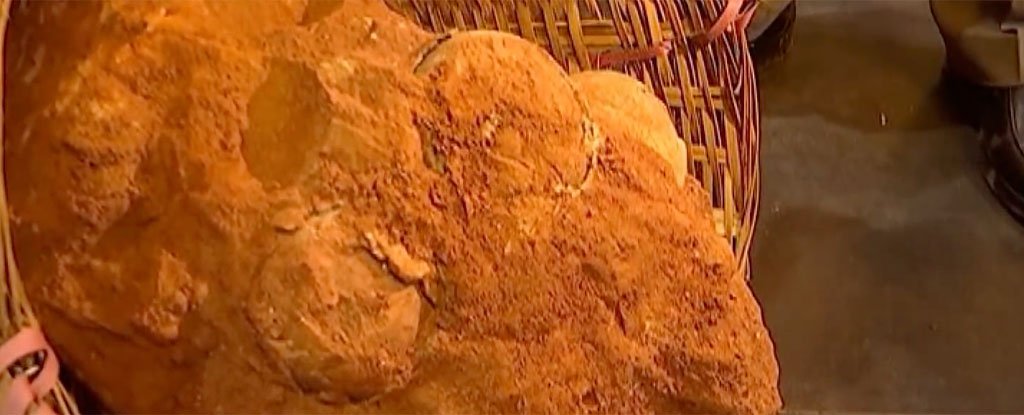70 Million-Year-Old Dinosaur Egg Fossils Have Been Discovered in China
Ancient dinosaur egg fossils thought to be some 70 million years old have been discovered at a construction site in southeast China.

The remains of five shells were found buried in sandstone in the city of Foshan in China’s Guangdong Province, at a depth of around 8 metres (26 feet), where scientists think they laid hidden and preserved since the late Cretaceous period.
“We found five eggs: three were destroyed, but they are still visible,” researcher Qiu Licheng from Guangdong’s Archaeological Institute told China Central Television (CCTV).
“The other two have their imprints on the stone. The eggs were round in shape, belonging to phytophagous [plant-eating] dinosaurs.”
You can see footage of the discovery, which took place last Monday in Foshan, in the video below, with the egg fossils measuring approximately 13–14 centimetres (5.1-5.5 inches) in diameter uncovered in large chunks of red sandstone excavated from local building site.
According to the archaeologists, the egg shells were damaged to varying degrees, with the veining that marked the shells’ surface still visible, and the insides of the eggs filled with sandstone.
Without peer-review verification the team can’t say for sure the age of the eggs or the species they belonged to.
The fossils are now being studied at a local museum, and while we’ll have to wait to see the findings confirmed by other scientists, it’s not the first time dinosaur eggs have been discovered in this part of China.
Dinosaur eggs have been found in this part of the world since the 1980s, with the neighbouring city of Heyuan – said to boast the largest number of dinosaur eggs in the world – unearthing 43 fossilised dinosaur eggs in 2015.
Foshan is located in a basin called Sanshui Basin, and researchers say the region’s high levels of plant and animal life in the past explain the area’s haul in dinosaur egg fossils.
“There are two things special about Sanshui Basin: one, it’s rich in minerals, two is that it’s rich in fossils, like dinosaur eggs from the Cretaceous period or fish fossils from the Paleogene period,” says Foshan’s chief geologist, Liu Jianxiong.
“This discovery is very important to our research on paleoclimate and sedimentary environment.”